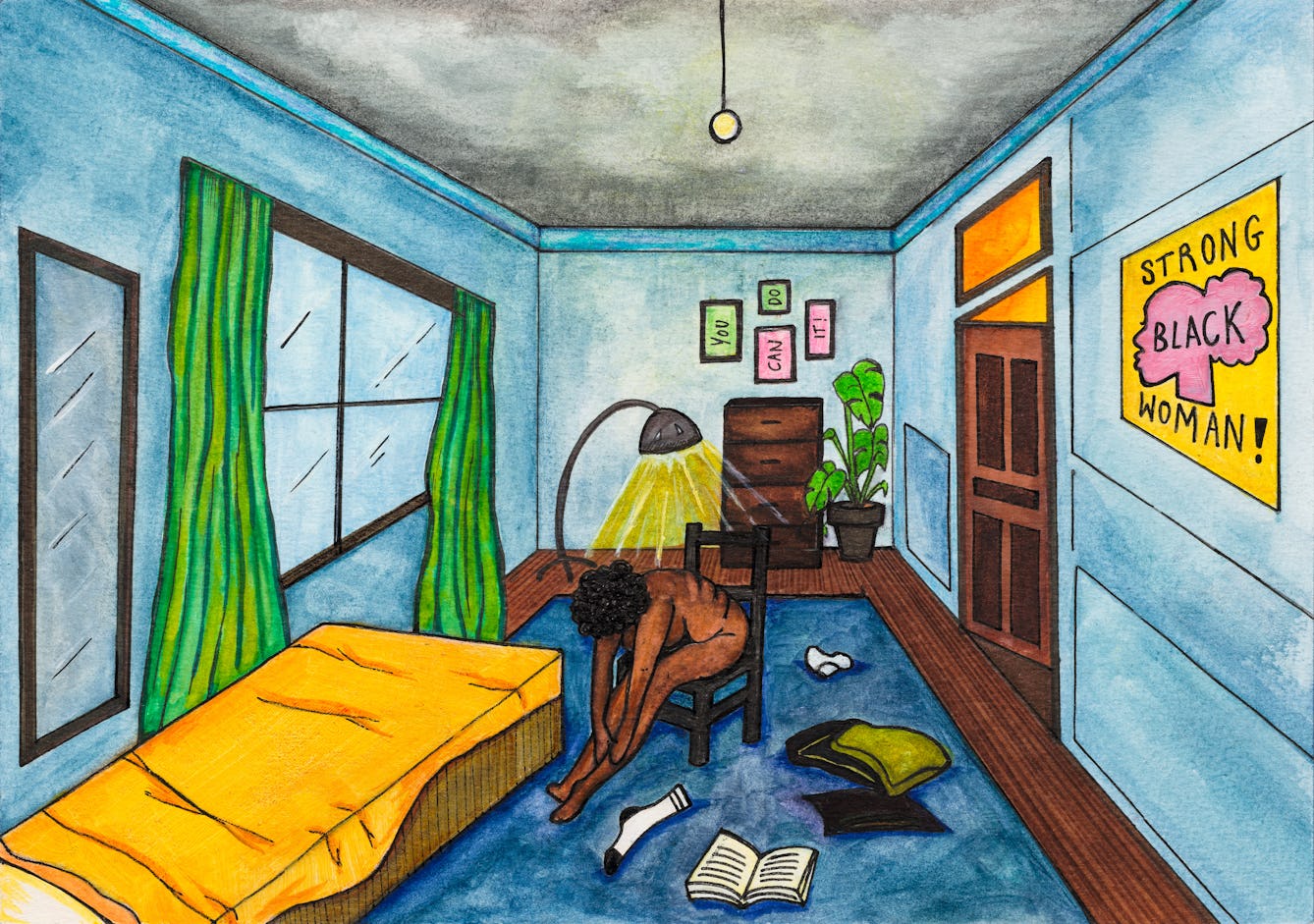
- Article
- Article
Don’t call me a strong Black woman
Her upbringing taught Jaydee Seaforth that she could never show pain or weakness, even when her internal distress was extreme. Find out how she learned to listen to her body.

- Article
- Article
How music opens the doors of memory and the mind
People living with dementia can often still listen, perform or move to music. What does this tell us about how memories are formed?

- Article
- Article
Believe yourself better
There’s more to recovery than medication. In future, our unconscious minds could be recruited to put a positive spin on our health problems, helping us feel better faster.

- Article
- Article
John Walter on ‘Alien Sex Club’
I’m a painter, but I make worlds.
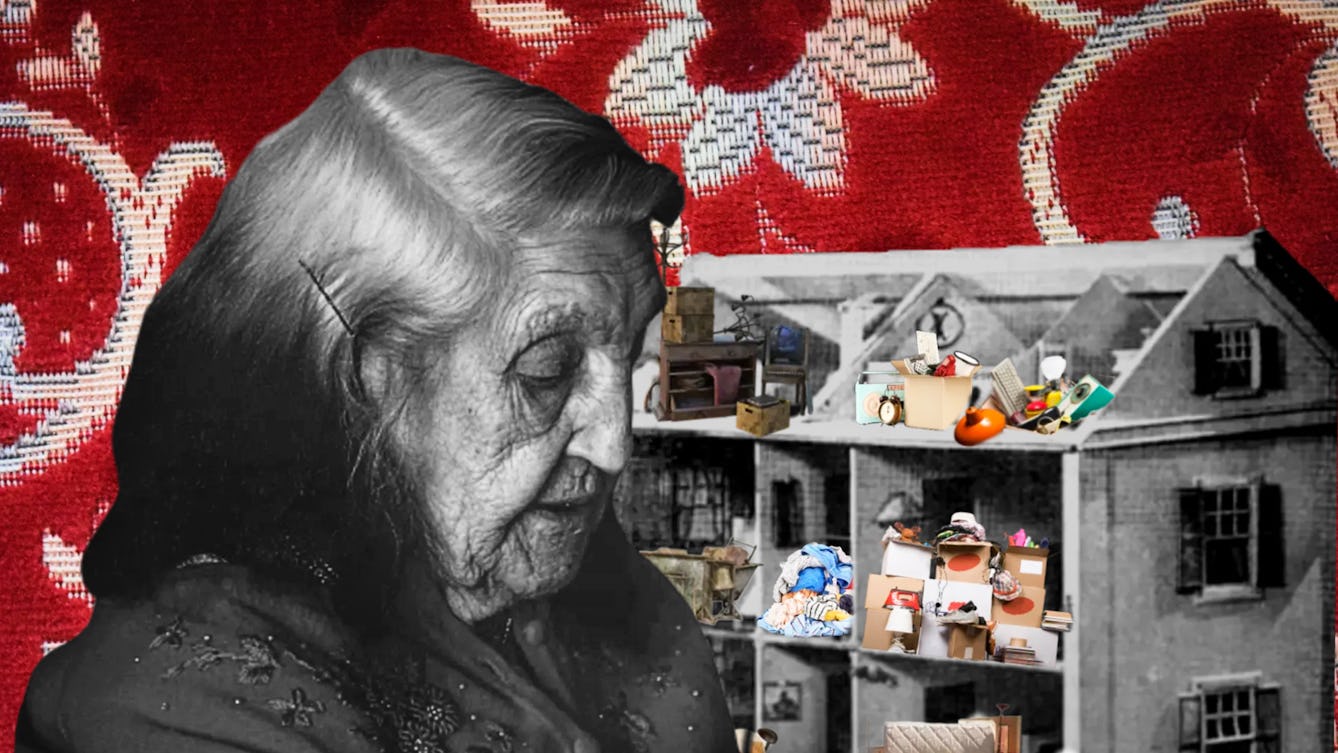
- Article
- Article
A woman in her wilderness of things
Even though her home was overwhelmed with stuff, Georgie Evans’s grandma couldn’t stop buying things. In this series, Georgie delves into hoarding, and attempts to make sense of her grandma’s behaviour.

- Article
- Article
Surviving as an asexual person in a heteronormative world
Experiencing no sexual attraction led Seleena Laverne Daye to feel she was somehow failing as an adult. But she found a way to claim her identity and to thrive.

- Article
- Article
Happiness in time
Trying to define happiness is like trying to grasp water: it evades us, constantly changing and becoming evident only in retrospect.

- Article
- Article
Pain and the power of activism
Today, women with endometriosis have more access to better information than ever before. Jaipreet Virdi applauds the shared stories, online communities and self-help books empowering women in pain.
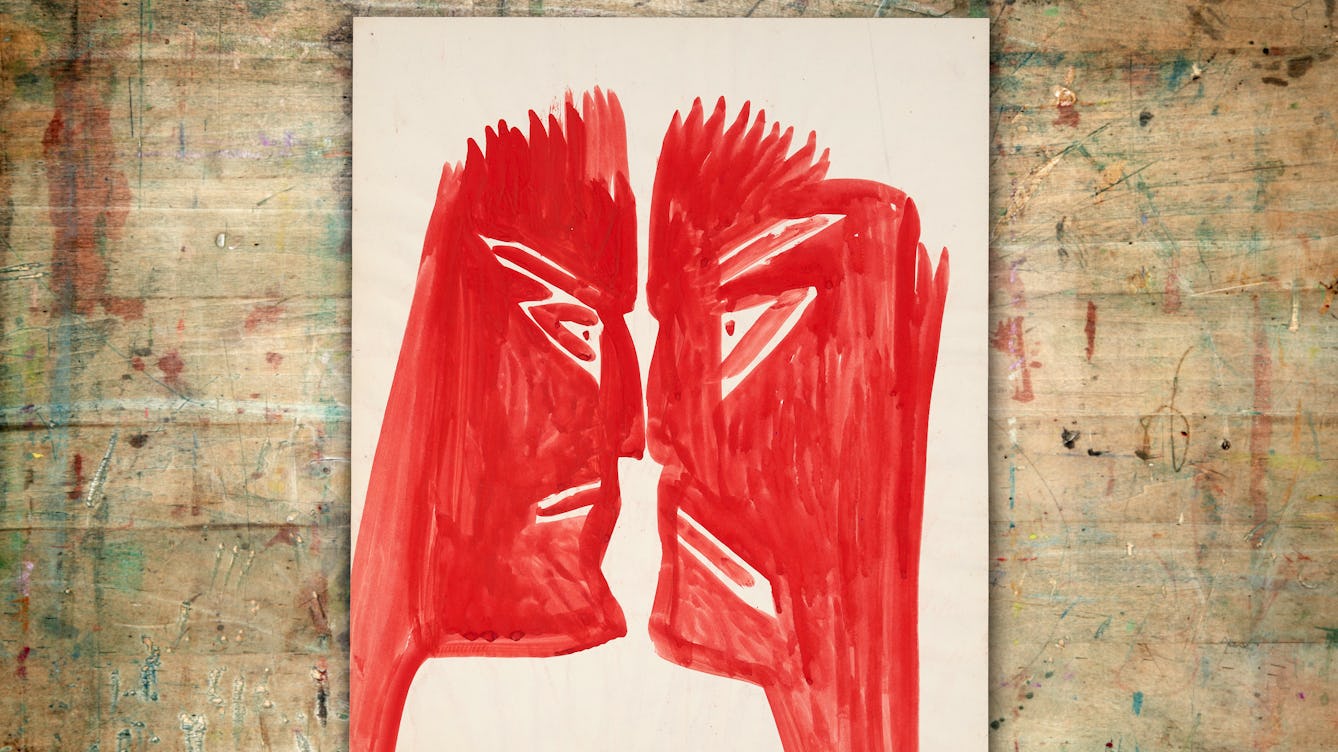
- Article
- Article
Mary Bishop and the surveillant gaze
Writer and artist Rose Ruane explores the paintings of Mary Bishop, created during a 30-year stay in a psychiatric hospital, which speak of constant medical surveillance and censorious self-examination.

- Article
- Article
How to talk to kids about race
When her daughter decided blonde was best, a red flag went up for Pragya Agarwal. In this essay, the behavioural scientist discusses childhood development, race and representation.

- Article
- Article
The enduring myth of the mad genius
There’s a fine line to tread between creativity and psychosis.

- Article
- Article
The ‘epileptic’ in art and science
From scarred outsiders in literature to the cold voyeurism of medical films and photography, people who experience seizures and epilepsy are rarely shown in a compassionate light in popular culture.

- Article
- Article
Electrical epilepsy and the EEG Test
The EEG (electroencephalograph) literally electrified the diagnosis and treatment of epilepsy. But for Aparna Nair the dreaded EEG tests of her adolescence were a painful ordeal.
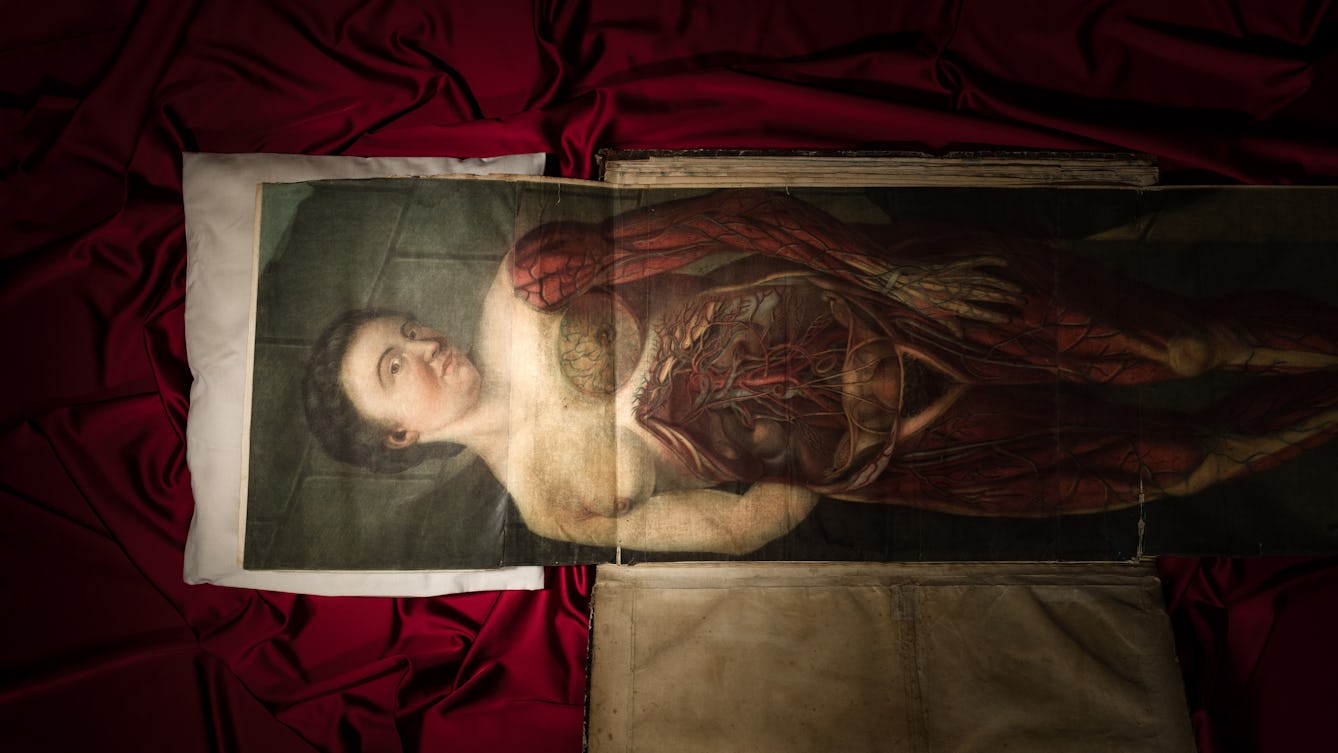
- Article
- Article
Printing the body
The 18th century saw multiple technical developments in both printing and medicine. Colourful collaborations ensued – to the benefit of growing ranks of medical students.

- Article
- Article
The cures and demons of sleep paralysis
Discover the murky past of sleep paralysis, the terrifying disorder once associated with demonic possession

- Article
- Article
Cocaine, the Victorian wonder drug
Today, cocaine has a very poor public image as one of the causes of crime and violence. But for the Victorians it was welcomed as the saviour of modern surgery.

- Article
- Article
Are doctors medical detectives?
Do doctors really identify medical conditions in the same way that detectives solve crimes? Neurologist Jules Montague makes her diagnosis.

- Article
- Article
Can isolation lead to manipulation?
Military-funded researchers wanted to know if isolation techniques could facilitate brainwashing. One neuroscientist suggested that it might improve our own control over our minds.

- Article
- Article
Epidemic threats and racist legacies
Epidemiology is the systematic, data-driven study of health and disease in populations. But as historian Jacob Steere-Williams suggests, this most scientific of fields emerged in the 19th century imbued with a doctrine of Western imperialism – a legacy that continues to influence how we talk about disease.
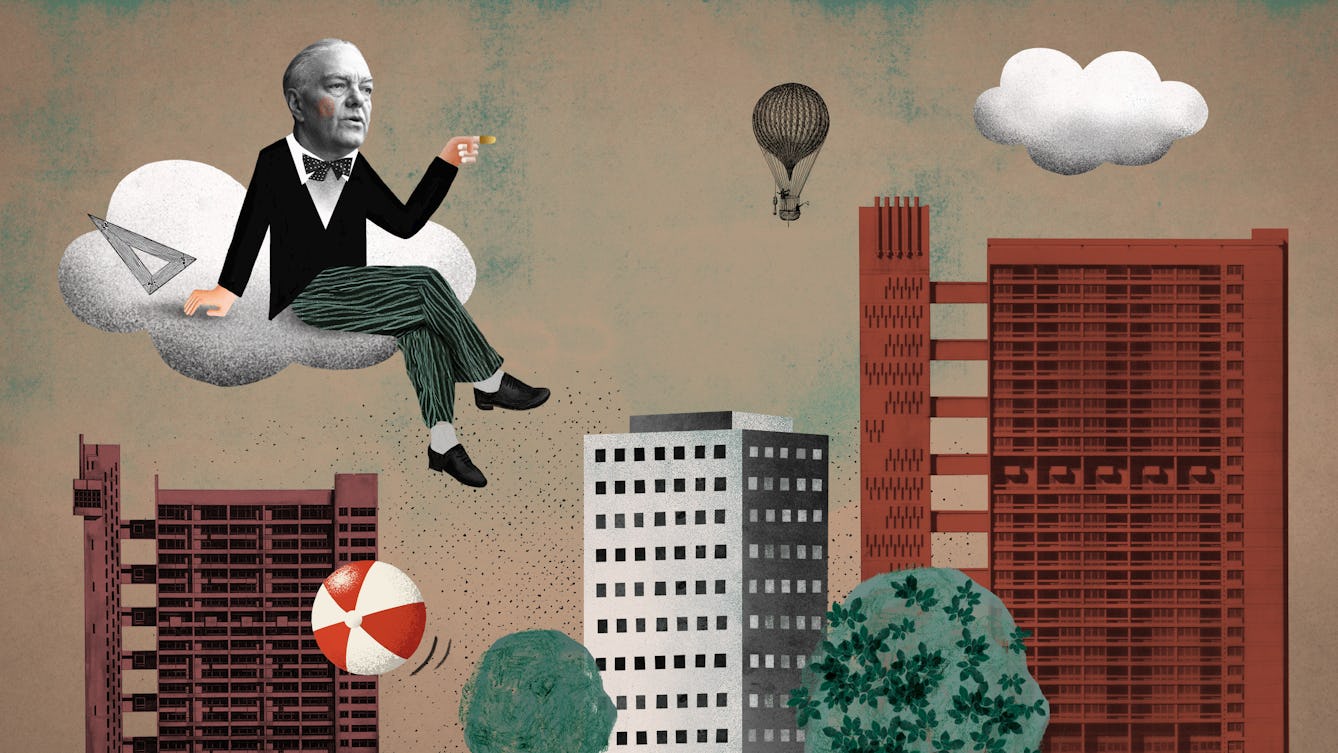
- Article
- Article
The tower in fiction, film and life
The high-rise estates born of postwar idealism soon became symbols of crime and squalor. But after one terrible tragedy, public bodies are being forced to rethink our towers.

- Article
- Article
Tripping for spiritualism and science
Getting high in the name of religion or creativity has been practised for centuries. Now it seems hallucinogenics could help treat mental illnesses too.

- Article
- Article
Society, not Covid-19, makes us vulnerable
Rick Burgess coped with the death of his mother in February 2020 by immersing himself in the task of protecting his community from Covid-19 and challenging the government's failure to protect and support elderly and Disabled people during the pandemic.

- Article
- Article
Migraine, creativity and me
Novelist Lydia Ruffles explores how migraine has made her mind stretch, shrink, widen and change, and how it’s influenced her art.

- Article
- Article
Going viral in the online anti-vaccine wars
‘Anti-vaxxers’ are taking their message online using powerful images as well as words. But is the pro campaigners’ response any better?

- Article
- Article
How we bury our children
Following her baby daughter’s funeral, Wendy Pratt found that visiting the grave gave her a way to carry out physical acts of caring for her child. Here she considers how parents’ nurturing instincts live on after a child’s death.